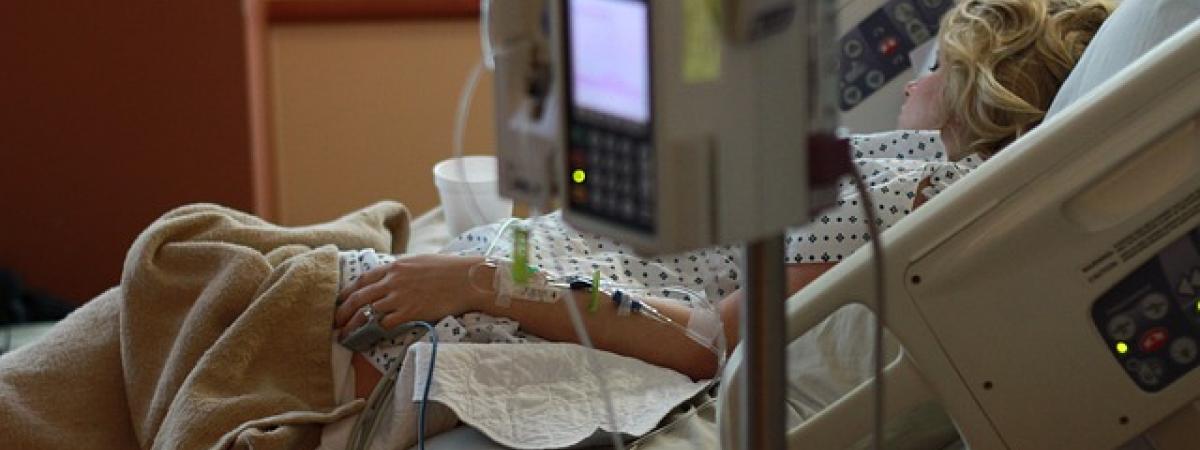Staying with your spouse in hospital
published in Reader's Digest,
01 October 2018

When you are the main carer for your spouse or partner, it can be hard handing over care to the clinical team during a hospital admission. Can you stay?
Oftentimes you won’t need to stay: kind, conscientious and respectful staff are more than able to meet most patients’ needs; respite from the role of informal carer may anyway be very much needed.
For some, though, an intimate knowledge of a loved one’s needs is invaluable in the hospital setting – and a right (but not a duty) to remain at the bedside is required: to leave them unsupported in any way would be unthinkable.
Informal carers
Almost seven million people in the UK act as informal carers, playing a critical role in caring for frail aged relatives and also younger family members with disability. They’ve not had training. Instead, as one carer puts it, “we are just ordinary people coping our best with an extraordinary and often unexpected situation, for which we were totally unprepared. We do it out of love. We do it knowing that it will continue until death (or dementia or other disability) do us part”.
"We are just ordinary people coping our best with an extraordinary and often unexpected situation."
Intimate knowledge
The informal carer will often have had years to get used to the particular ways in which to help: their knowledge will be beyond that gleaned in a single hospital handover. They are likely to be master of moving and handling and experts in getting their loved one to eat; they often have a sixth sense of when something is just not right, because of their shared lives together.
Invaluable
When Nicci Gerrard’s father, who lived with dementia, went into hospital with an infection, he was articulate and able. Weeks later, he emerged a broken man – immobile, incoherent and incontinent. Nicci is convinced that if family members had been allowed to stay with him, talk to him, read to him, keep him connected to the world, then he would not have so precipitously declined. She is convinced that hospital is a hazardous place for those with dementia.
Having a loved one close by can also be important if you are living with particular physical needs, or if you are at the end of life. ‘Terminal agitation’ is a state of heightened anxiety that sometimes develops as the end draws near. Comfort can come from the closeness of a family member, with talking and touch a great reassurance.
Innovation
With “resolution, collective optimism and the kindness of strangers”, Nicci Gerrard and Julia Jones founded ‘John’s Campaign’ which, simply put, “asks that carers of people with dementia [or other particular physical and mental health needs] have the same rights as parents of sick children to accompany them in hospital - to be their cognitive ramps, their experts in experiences, a voice for the voiceless”.
Flexible visiting hours, ‘carer’s cabins’ (where a listening ear and free refreshments are available) and a welcoming attitude from staff who respect carers as expert partners in care: these are ways in which John’s Campaign can work on the ward or in the care home. Another aim is for dementia carers to accompany patients to surgery and be ready in the recovery room afterwards.
Almost 1500 wards, hospitals and other institutions across the UK have signed up to John’s Campaign.
Invitation
Almost 1500 wards, hospitals and other institutions across the UK have signed up to John’s Campaign, pledging to welcome carers whenever a patient needs them. Knowing that your local hospital or care home has pledged support to John’s Campaign can embolden relatives to approach staff and ask for the right to stay if needed. Everyone benefits when informal carers are welcomed as experts in care.
